Anyone applying for a Digital Nomad visa in Colombia in 2025 must be alert to the new requirements implemented by the Ministry of Foreign Affairs, as well as the increase in visa rejections, which has created challenges and difficulties for all remote workers who dream of living and working in Colombia while discovering its culture and beauty. Below, we will provide information on the changes, the stricter requirements, and the possible negative and positive consequences regarding this matter.
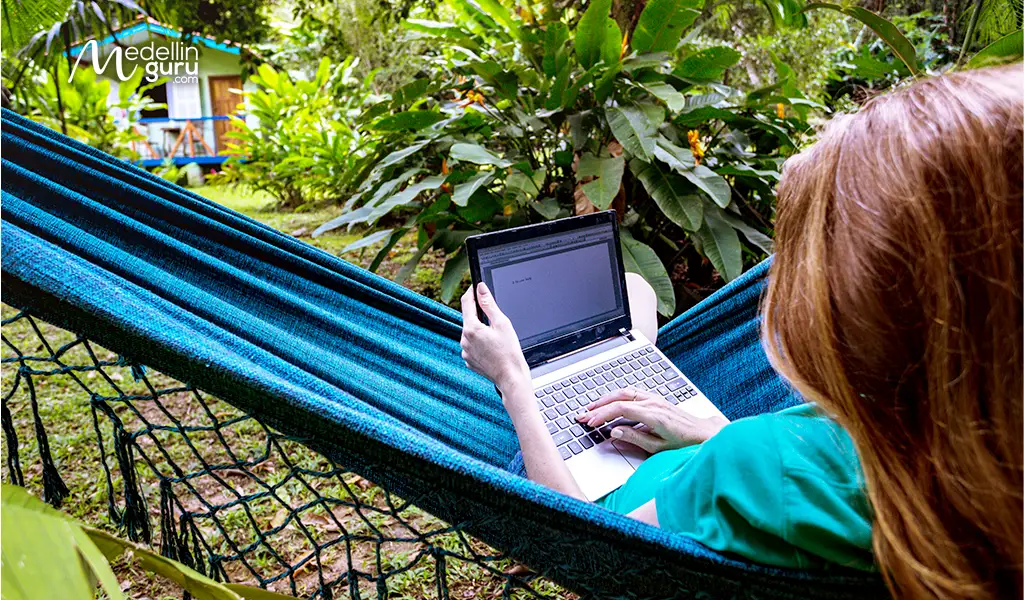
What Are the Main Changes When Applying For The Colombian Digital Nomad Visa in 2025?
Although there are understandable obstacles to obtaining a digital nomad visa in Colombia, such as the strict FBI background check requirements that often involve a cumbersome process and significant delays. We have observed with growing concern that the Ministry of Foreign Affairs has denied applications for unclear reasons. This situation has arisen even for highly qualified professionals and employees of established foreign companies or business partners with impeccable track records. The Ministry of Foreign Affairs has argued its discretionary power without providing detailed explanations regarding the specific reasons for these denials.
This opaqueness and the current inconsistent application of criteria sharply contrast with the original intent and spirit of the Digital Nomad Visa program. Initially, it was anticipated that certain stricter requirements, or the application of more rigorous scrutiny, would only apply to entrepreneurs with digital projects already underway or about to start given the nature of their activities and the need to assess the viability of their projects. However, the current reality shows that professionals with stable remote work contracts, or those operating as part of well-established international business structures, also face these arbitrary rejections, creating uncertainty and frustration within the digital nomad community.
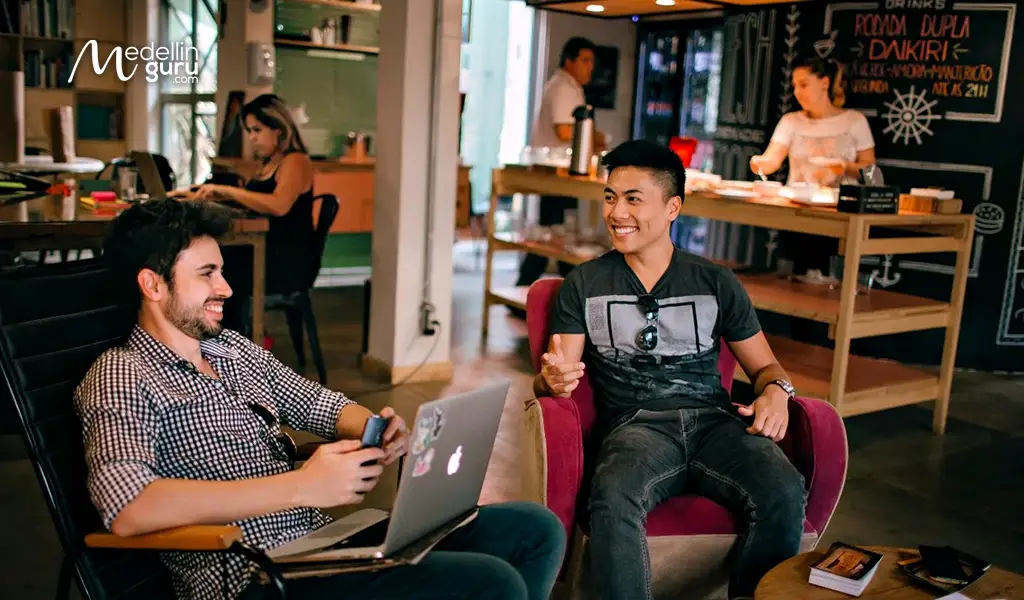
What is the Negative Impact of This Situation on Colombia's Digital Nomad Ecosystem?
The recent increase in Digital Nomad Visa rejections in 2025 has raised serious concerns within Colombia’s growing remote work community. This program had been seen as a promising way to attract enthusiastic digital nomads willing to have a cultural and immersive experience within the local community while discovering the country, highlighting Colombia as a top country for remote workers because of connectivity, safety, cost of living, and attractiveness. While the surge in rejections may seem alarming and potentially damaging to this emerging ecosystem. It’s worth noting that there may be both downsides and benefits. These stricter approval standards could signal a more strategic, long-term vision by immigration authorities. Let’s begin by exploring the negative impacts:
Economic Downturn and Lost Opportunities
Due to the changes in the Digital Nomad Visa in 2025, one of the most immediate and tangible effects is a reduction in this vital foreign expenditure, which could lead to:
Decreased Revenue for Tourism and Hospitality
Hotels, guesthouses, colivings and short-term rental providers, who will gear up to cater to this demographic, will see a decline in bookings. Restaurants and cafes, especially those in popular digital nomad destinations, will likely experience a decline in patronage.
Stagnation in Real Estate
The demand for rental properties, particularly those suited for luxury, high-end-long-term stays, could wane, impacting landlords and real estate agencies.
Reduced Investment in Co-working Spaces
The growth of co-working spaces, vital for digital nomads, may decline as their primary clients diminish, potentially hindering local tech ecosystems that thrive on collaboration with international remote workers.
Loss of Entrepreneurial Spirit
Many digital nomads are entrepreneurs or innovators who could potentially bring new ideas, skills, and even investment opportunities to Colombia. Their absence means a loss of potential economic diversification and innovation.
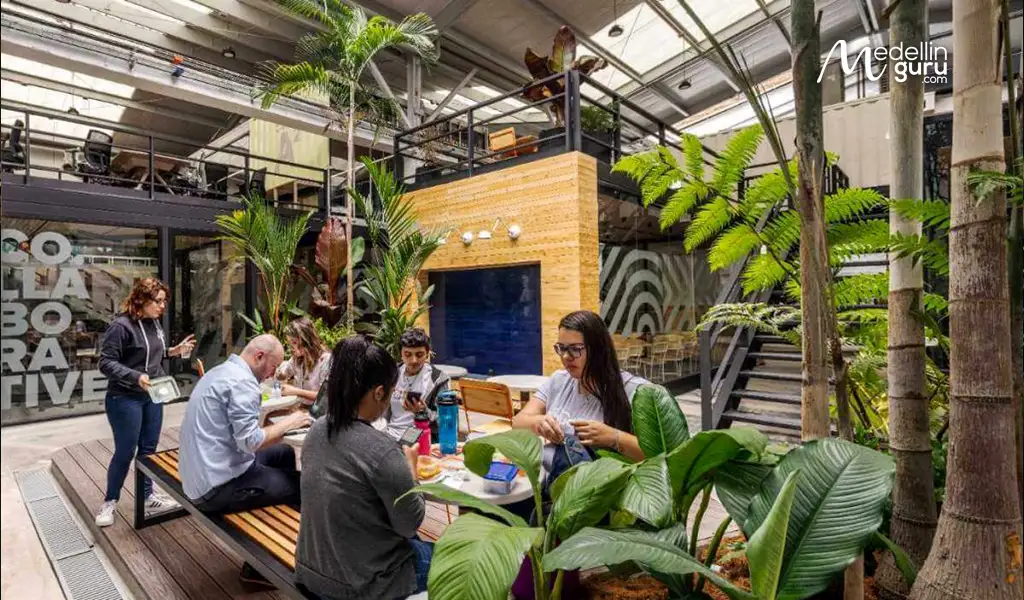
Damage to Colombia's International Image
Secondly, the Digital Nomad Visa was heralded as a progressive step, showcasing Colombia’s openness to the global remote work trend. The current situation risks tarnishing this reputation, projecting an image of inconsistency and unpredictability. News of widespread rejections travels quickly within the digital nomad community, often via online forums, social media, and word of mouth, which could lead to:
Deterrence of Future Applicants:
Potential digital nomads considering Colombia as a destination may now opt for other countries with more stable and predictable visa processes.
Loss of "Cool Factor":
Colombia had successfully cultivated an image as a vibrant and welcoming destination for remote workers. This positive perception is now under threat, potentially leading to a decline in its attractiveness compared to other emerging digital nomad hotspots.
Reduced Foreign Direct Investment:
While not directly tied to the Digital Nomad Visa, a perception of administrative inefficiency or unreliability can subtly influence broader foreign direct investment decisions, as investors seek stability and clear regulatory frameworks.
Loss of the Next Big Step:
Many digital nomads come to Colombia for a few years and fall so deeply in love with the country that they end up investing in businesses and buying residential or commercial properties. Most nomads migrate to M-type investment or business visas after a few years, once they experience Colombia’s potential firsthand. That progression is now at risk due to the current situation.

Uncertainty and Frustration Among Applicants
The most immediate impact is, of course, on the individuals who have invested time, effort, and money into their visa applications, only to face rejection. This leads to: widget de acordeon
Financial Losses:
Applicants incur costs for flights, accommodation, visa application fees, and sometimes legal assistance. Rejections mean these investments are lost, which is why, during this uncertain period, it is recommended to apply from your country of origin to avoid loss of money and time in case of inadmissibility.
Disrupted Plans
Many digital nomads meticulously plan their lives around their chosen destination, including work projects, personal commitments, and travel itineraries. Rejections throw these plans into disarray.
Erosion of Trust
The lack of clear communication, inconsistent application of criteria, and the perceived arbitrariness of rejections erode trust in the Colombian immigration system.
The current wave of Digital Nomad Visa rejections in Colombia is not merely an administrative hiccup but also represents a significant threat to the country's aspirations of becoming a leading destination for remote workers. The ripple effect of these rejections extends to economic stability, international reputation, and the very spirit of collaboration and a cultural exchange that digital nomads embody. This situation requires a swift and comprehensive response from the Colombian authorities to safeguard the future of its digital nomad ecosystem and ensure that the initial promise of this initiative can be fully realized.
Become a Digital Nomad in Colombia
Our reliable partner expatgroup.co offers a wide range of services for Digital Nomads:
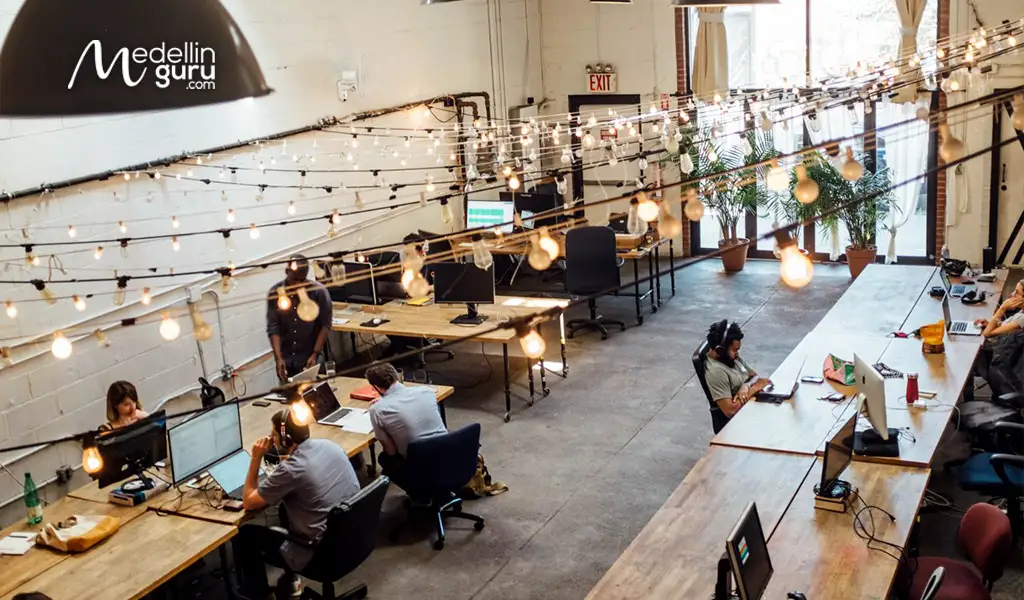
What are the Positive Impacts of Rejecting the Digital Nomad Visa in 2025?
Let’s focus on the positive aspects that this situation presents, which could shed light on the reasons why migration authorities have chosen to reject numerous Colombian digital nomad visa applications:
Stricter Screening Could Help Attract Higher-Quality Applicants
The stricter visa requirements, while initially a hurdle, could lead to a more streamlined and clearer application process in the long run, which would benefit both applicants and the immigration authorities by reducing ambiguity and increasing efficiency, ensuring two key factors:
Attraction of Higher-Value Nomads
A more rigorous vetting process could inadvertently attract digital nomads who are genuinely committed to contributing to the local economy and culture, rather than those seeking a temporary, low-cost lifestyle. This could lead to a more stable and beneficial demographic of remote workers.
Reduced Strain on Infrastructure:
A slower, more controlled influx of digital nomads could alleviate pressure on local infrastructure, housing, and public services in popular areas. This allows for more sustainable development and prevents oversaturation.
Redirection to Other Visa categories:
A more rigorous process will also lead to a redirection of applicants to other visitor-type Visa categories, such as Market Research or Annuity visas, or even M-type visas like the Business Owner and Real Estate Investment Visa, which may be worth considering.

Avoiding Gentrification and Preservation of Local Culture
One significant, albeit unexpected, positive consequence of the current uncertainty surrounding Colombia’s Digital Nomad Visa rejections in 2025 is the potential preservationof local culture. The influx of digital nomads, while bringing some economic benefits, often leads to rapid gentrification in popular areas. This process can inflate housing costs, displace long-term residents, and dilute the unique cultural identity of neighborhoods as businesses cater more to foreign tastes than local needs.
The current hurdles in obtaining the digital nomad visa could naturally slow down the pace of this demographic shift, as reducing the number of new digital nomads settling in certain areas may ease the pressure on housing markets, making it more feasible for local families and businesses to remain in their communities. This deceleration of gentrification is crucial for safeguarding the cultural fabric and economic viability of traditional areas. It allows local communities to retain their unique character, preserve their traditions, and maintain their social networks, which are often disrupted by rapid demographic changes.
While gentrification is a complex issue with negative connotations, a more controlled and sustainable growth of the digital nomad ecosystem could offer some nuanced positive impacts in this area, particularly if managed thoughtfully:
Improved Local Amenities
Increased demand from a more stable and integrated digital nomad population could incentivize improvements in local amenities, such as better internet infrastructure, diverse culinary options, and improved public spaces. If these improvements are accessible and beneficial to local residents as well, they can represent a positive development.
Diversification of Local Economies:
In some cases, the presence of digital nomads can stimulate new service industries and creative ventures that might not otherwise exist, offering new employment opportunities for locals beyond traditional sectors.
Potential for Regulated and Managed Development:
The current situation highlights the need for clear regulations. This could lead to policies that ensure new developments and businesses cater to both locals and newcomers, preventing unchecked gentrification and promoting a more equitable distribution of benefits. For example, policies could be implemented to ensure a percentage of new housing developments are affordable for locals, or to support local businesses in adapting to new demand without being priced out.
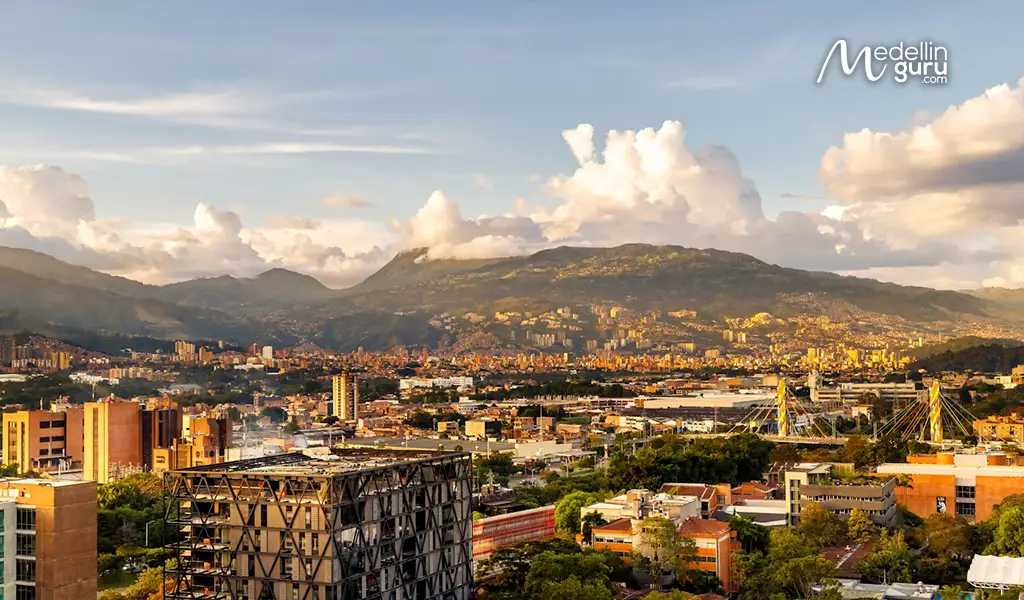
What Do Applicants Think About the Stricter 2025 Digital Nomad Visa Requirements?
As we mentioned in our blog “Uncertainty Due to Colombia Digital Nomad Visa Rejections in 2025,” there are dozens and dozens of people who are currently experiencing great dissatisfaction due to the constant rejections being applied to Colombian Digital Nomad Visa applications in 2025. There, Jackie, an expat and enthusiast digital nomad shared their case with us, in which, in addition to perfectly detailing the reasons provided by the Ministry of Foreign Affairs for rejecting her application, including the sudden declaration of inadmissibility. She also gave us a statement about how this ongoing situation has affected her and other expats around her.
How has this entire process affected your perception of Colombia as a destination for digital nomads?
Jackie:
Yes, for sure, this has changed my perception. I mean, this is just a very unfair and non-transparent process. It feels very unfair because we needed to get a lot of documentation translated and apostilled, for example. I needed the criminal background check, which I already got beforehand. I had it apostilled and translated. All those costs add up, and then to be immediately declared inadmissible without being asked for further questions or documents feels bad. If they don’t want to have this many digital nomads, they should announce that and put a halt to it, because this is just a lot of time and money wasted on nonsense.
If you apply again and your visa is rejected, will you still consider Colombia as a base, or look at other countries?
Jackie:
As I’ve already applied twice for this visa and got inadmitted both times, I’m not going to apply for this type of visa again because I simply don’t know how I could improve my documentation. Also, I’ve heard there’s a chance of being rejected, and in that case, you can’t apply for a new visa for the next six months. I can’t take that risk.
I have a Unión Libre with a Colombian partner. We’ve been together for almost three years now, and for the last two years, I’ve been coming and going to Colombia just on a tourist visa. I was really hoping this digital nomad visa would give us more time to be together.
Next year in January, I can apply for a partner visa based on our one-year Unión Libre. So I’ve decided I’ll just leave the country for the next half year and come back next year. If I had known all of this earlier, I would’ve done things differently. I might not have stayed in Colombia for the first half of the year… maybe I would have spaced things out more.

Like Jackie, many digital nomads are bewildered by the measures taken by the Immigration Authority for Digital Nomad Visa in 2025, leaving them with alternatives such as re-profiling, in order to redirect their application to another type of visa that aligns with their circumstances and results in an application with a higher chance of success than the one they are currently presenting for the Digital Nomad Visa. To do this, it is necessary to conduct a Paperwork Review, for which we suggest seeking professional and expert help that allows you to proceed with confidence and find a new type of visa with the best possible guidance, which you can find through our trusted partner, expatgroup.co, who offers their years of experience and the professionalism of their agents to assist you in these uncertain times and lead you to a more favorable and beneficial situation for you.
Basic Paperwork Service
Our reliable partner, expatgroup.co, offers legal document review services to ensure that your paperwork complies with Colombian regulations after being unadmitted in first instance, through:
- Document analysis
- Detailed digital report outlining the review results and expert recommendations.
- Fast processing time with results delivered in approximately 3 business days.
Medellin Guru's comprehensive visa and passport series
The Colombian visa changes that went into effect in October 2022 were significant. So, on the Medellin Guru site, we have a comprehensive series of visa articles that are kept up-to-date and should answer most visa questions. These articles include:
- Colombia Visa Guide: Ultimate Guide How to Get a Colombian Visa
- How to Obtain a Colombian Visa with Up-to-Date Info – an overview of all the Colombian visas
- Popular Colombian Visas for Foreigners: Which Visa is the Most Popular?
- Coronavirus Impacts on Colombian Visas and Tourist Visas
- Visa Agencies: A Guide to Visa Agencies in Medellín and Colombia
- 9Common Colombian Visa Mistakes: How to Avoid Them
We have looked in detail at the nine most popular Colombian visas used by foreigners:
- Digital Nomad Visa
- Retirement visa
- Marriage visa
- Investment visa
- Business Visa
- Resident visa
- Work visa
- Student visa
- Visitor visa
Also, we have looked in detail at three additional Colombian visas, which are less popular for foreigners:
- Rentista visa (annuity visa) – for foreigners with a fixed income
- Beneficiary visa – for relatives of visa holders
- Expertise visa – for professionals
In addition, we have a guide to Colombia tourist visas and how to extend a tourist visa. Also, we have a guide to renewing U.S. passports in Colombia and a guide to obtaining a Colombian passport.
Furthermore, we provide information about travel insurance that meets the insurance requirement for Colombian visas. And we have a guide to how apply for a cedula extranjeria in Colombia and a guide to using notaries in Medellín and Colombia. Finally, Medellin Guru has partnered with a visa agency to offer Colombia visa services.
All of our Colombia visa articles are up to date (2024) and constantly receive updates in 2025.
The Bottom Line: Colombian Digital Nomad Visa in 2025: Changes and Stricter Requirements
The new, stricter requirements and increased rejection rates for the Colombian Digital Nomad Visa in 2025, implemented by the Ministry of Foreign Affairs, present significant challenges for remote workers. While some changes, such as rigorous background checks, are clear, others, like inadmissibility and denial based on professions or reasons covered under “discretionary power,” lack transparency. This situation could lead to economic downturns in tourism and hospitality, stagnation in real estate, and reduced investment in co-working spaces, potentially damaging Colombia’s international image. Despite these negative impacts, the stricter screening could attract higher-quality applicants, reduce strain on infrastructure, and help preserve local culture by slowing down gentrification, suggesting a more strategic, long-term vision from immigration authorities.
Medellin Guru Social media
Be part of our community. Find out about news, participate in events and enjoy the best of the city.

